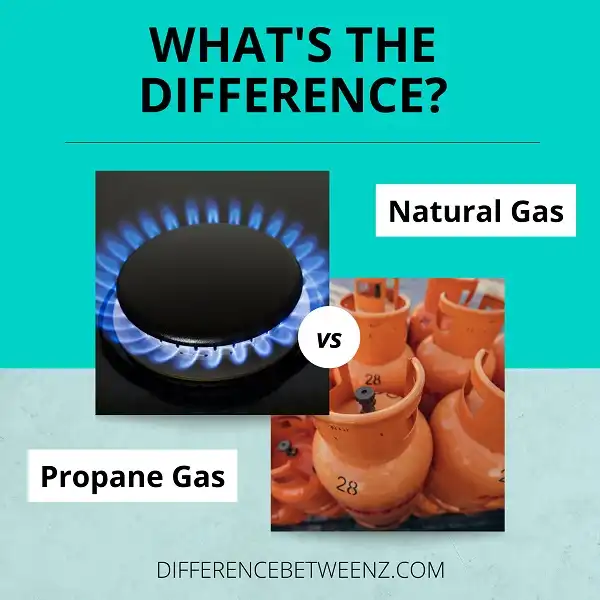When it comes to home heating, people have a choice between natural gas and propane. Both fuels have their pros and cons, but which one is the best for your home? Here’s a look at the difference between natural gas and propane.
What is Natural Gas?
Natural gas is a fossil fuel that is found underground. It is made up of methane and other gases and is often used to heat homes and businesses. Natural gas is also used to generate electricity, and it is burned in some types of vehicles. Natural gas is a cleaner-burning fuel than coal or oil, and it produces less air pollution. Natural gas is extracted from the ground using drills, and it is then transported to consumers through pipelines. Natural gas can be a safe and reliable source of energy, but it can also be dangerous if it leaks from pipelines or if it builds up in an enclosed space.
What is Propane Gas?
Propane is a hydrocarbon and is classified as a heavy gas. It is a colorless, odorless gas that is widely used as fuel. Propane is derived from natural gas processing and oil refining. Propane is nontoxic, but it is flammable and explosive. Propane is commonly used in heating, cooking, hot water, and vehicles.
It is also used in welding and as a fuel for lanterns and torches. Propane can be stored as a liquid or a gas. Propane is an energy-dense fuel and has a high octane rating. It burns cleaner than other fossil fuels and produces less carbon monoxide. Propane can be used in internal combustion engines and turbine engines. Propane is also used in refrigeration, air conditioning, and freezing. Propane has a wide range of uses due to its versatility, portability, and safety.
Difference between Natural Gas and Propane
Natural gas and propane are both fossil fuels that are used for a variety of purposes, including heating and cooking. Although they are similar in many respects, there are also some significant differences between them. Natural gas is typically piped directly to homes and businesses, while propane must be stored in tanks.
Natural gas is also generally less expensive than propane. In terms of environmental impact, natural gas is a cleaner-burning fuel than propane, although both contribute to greenhouse gas emissions. When considering which fuel to use, it is important to weigh the relative costs and benefits of each.
Conclusion
So, what’s the difference? Natural gas is a fossil fuel that burns hotter and cleaner than propane. It also costs less to operate because there is no need for a storage tank. Propane, on the other hand, has a longer shelf life and can be used in colder temperatures than natural gas. If you’re looking for an environmentally friendly option that still offers versatility, natural gas may be the best choice for you. If you need fuel that will work in colder climates or have concerns about safety, propane may be a better fit for your needs.


